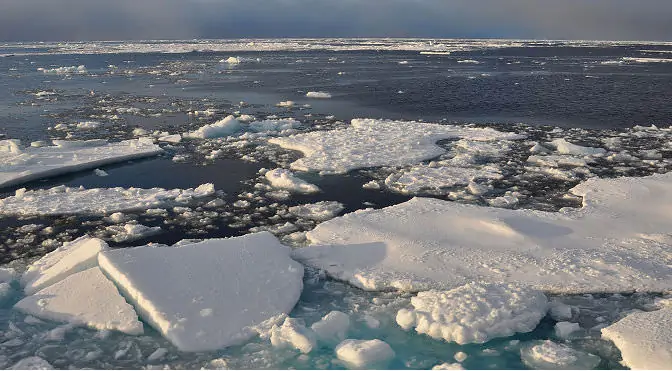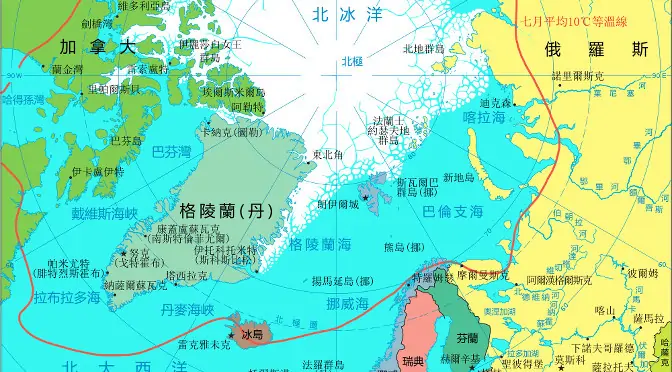Our planet is changing. The current geological epoch is characterized by the fact that the human species has become the principal geological and biological force on Earth. This global change is driven by the development of technology, agriculture, industry, urbanization, the systemic use of coal, oil and natural gas as energy sources and their convergence. …
Tag Archives: Arctic issues
Energy Geopolitics and Climate Politics: a Complicated Relationship
The geopolitical landscape at the end of the year 2015 is especially strange. In effect, it is both dominated by the enormous gathering of heads of states and governments in Paris for the “COP 21”, which aims to make possible an international treaty on climate change, and by the war against the Islamic State, as the French president works to make possible a new cooperation between the U.S.-led coalition and Russia against the common foe (Yves Bourdillon, “Hollande, Poutine et Obama se liguent contre Daech”, Les Echos, 17/11/2015) after the terrible attacks on Paris on 13 November, following the downing of the Russian Plane on 31 October, the attack in Lebanon on 12 November and the bombing in Tunis on 24 November. …
Continue reading “Energy Geopolitics and Climate Politics: a Complicated Relationship”
China and the New Silk Road: From Oil Wells to the Moon… and Beyond
On 25 May 2015, the Chinese political authorities agreed to finance the building of a pipeline between Pakistan and Iran, dubbed the “peace pipe line” (Valantin, “China, and the new silk road: the Pakistani strategy”, The Red Team Analysis Society, May 18, 2015). As we saw, this agreement is part of the Chinese strategy called “the New Silk Road”, which is defined by the concept of “One belt, One road”. The “road” is aimed at creating a worldwide “land and sea” system (“Belt and Road Nations account for 26 per cent of China’s trade”, The Beijing Review, April 29, 2015), in order to attract supplies and diverse resources much-needed by the rapidly growing Chinese economy and urban development. Each “segment” of …
Continue reading “China and the New Silk Road: From Oil Wells to the Moon… and Beyond”
The Arctic, Russia and China’s Energy Transition
Numerous Chinese cities go through what is now dubbed an “airpocalypse” mainly due to the explosion of coal plants and transport by cars. In the meantime, Russia is renewing and expanding its network of oil and gas pipelines toward China. Meanwhile, the Arctic and subarctic region is going through a major atmospheric warming of more …
Continue reading “The Arctic, Russia and China’s Energy Transition”
The Russian Arctic, Energy and a Massive Power Shift
A major world power shift is happening in the Arctic. It is due to new massive oil and gas discoveries, combined with the effects of climate change. In effect, on 28 September 2014, Igor Sechin, CEO of Rosneft, the Russian mammoth oil company, announced the discovery of a giant oil field in the Kara Sea, north of Siberia (Zero Hedge, “Russia discovers massive Arctic oil field which maybe larger than the Gulf of Mexico“, 28 September, 2014). According to the first commentaries, this sub-sea structure called Universitetskaya, potentially, could contain reserves of oil and gas equal or superior to the Gulf of Mexico. As Igor Sechin declared, quoted by Bloomberg (Arkhipov, Chierman and Chilcote, “Russia says Arctic well drilled with Exxon Mobil …
Continue reading “The Russian Arctic, Energy and a Massive Power Shift”
Arctic: the US Lost Frontier?
As the Arctic is warming, the Chinese and Russian influence in this region is rising (Valantin, Arctic Fusion: Russia and China convergent strategies, 2014). Meanwhile, one can wonder if the US strategic influence is not waning. During the last seven years, China and Russia have developed and deployed powerful Arctic grand strategies, through political, economic, industrial, technological and military means (Ding Ying, “Realizing Chinese and Russian dreams, China and Russia are determined to promote bilateral relationship to make both countries safe, strong and prosperous“, The Beijing Review, March 28, 2013). Since the end of the nineteenth century, the USA has been a prominent Arctic power (Charles Emmerson, The future history of the Arctic, 2010). Is it still the case, and will …
Continue reading “Arctic: the US Lost Frontier?”
Arctic Fusion: Russia and China Convergent Strategies
Is the Arctic becoming a Sino-Russian lake? The question must be asked, because of the way these two Eurasian giants are gaining a massive and coordinated influence in the whole Arctic region, taking advantage of the geophysical changes caused by global warming (NASA, Global climate change). For example, following the historic $ 400 billion deal between Russia’s Gazprom and China, through which Russia will supply China with oil and gas for thirty years, it was announced that companies of the two countries were looking forward to explore and develop the Russian Far East, which is part, or is very close to the Arctic and subarctic region (Ding Ying, A Gas bond, energy cooperation will serve as a new link between …
Continue reading “Arctic Fusion: Russia and China Convergent Strategies”
Arctic China (2) – The Chinese Shaping of the North
Over the last few years China has been multiplying commercial and political relationships with Arctic countries. Reciprocally, these countries have been deepening their Chinese bonds. For example, on 24 April 2014, Queen Margrethe II of Denmark paid a state visit to China, and was received by President Xi Jinping (Global Times, “China, Denmark eye closer relationship“, 2014-4-25). During this visit, a ceremony was held over the signature of several agreements, “involving maritime technology, energy conservation, and poverty elimination among other fields.” (Global Times, ibid). These new political and economic ties between Beijing and Copenhagen are being developed alongside new relations between China and Greenland (Viviane du Castel et Paulo Brito, Groenland, entre independence et recuperation géostratégique?, 2014), which, today, is partly autonomous …
Continue reading “Arctic China (2) – The Chinese Shaping of the North”
Arctic China (1) – The Dragon and the Vikings
On 15 March 2013, China and Iceland signed a bilateral free trade agreement (Ministry for foreign affairs, Iceland). This agreement was signed three months before the Republic of China became a “permanent observer”of the Arctic Stephen Blank, “China’s Arctic strategy“, The Diplomat, 20 June 2013), while the “Snow Dragon”, the first Chinese icebreaker, has already made five trips in the Arctic, in 1999, 2003, 2008, 2010 and 2012, at which occasion it sailed the Northern Sea Route. This political and economic move by Beijing reveals a deep evolution of the grand strategy of the People’s Republic of China, as well as the shifting balance of power in the north-Atlantic region and in the Arctic. Over the last twenty-five years, with a …
Continue reading “Arctic China (1) – The Dragon and the Vikings”
The Warming Arctic, a Hyper Strategic Crisis
Adapting a famous battle between the Teutonic knights and the Russian army during the thirteenth century in his 1938 movie, “Alexandre Nevski”, Sergei Eisenstein directs one of the most famous war scene in the movie’s history: he shows the terrible armoured Teutonic Knights charging the Russian ragtag army over a frozen lake. However, such is the weight of the Knights’ armours, that, after some fights, the ice of Lake Peipous breaks up and all the Knights drown, giving the victory to the Russians. This could be a metaphor for what might happen in the Arctic during the decades to come, with an important nuance: there might be no winner in the end. Because of climate change, the Arctic is warming …
Continue reading “The Warming Arctic, a Hyper Strategic Crisis”











